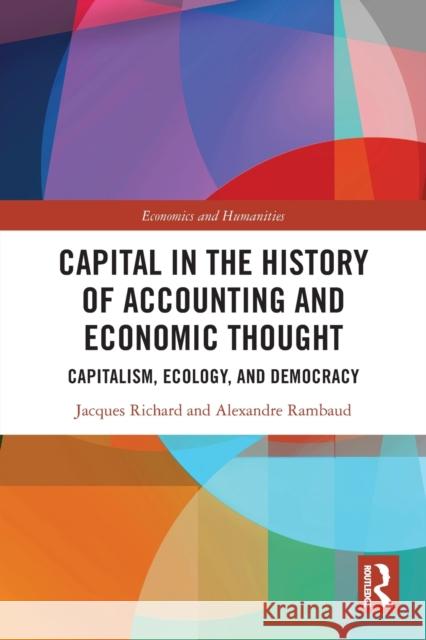Capital in the History of Accounting and Economic Thought: Capitalism, Ecology and Democracy » książka
Capital in the History of Accounting and Economic Thought: Capitalism, Ecology and Democracy
ISBN-13: 9781032046570 / Angielski
Capital in the History of Accounting and Economic Thought: Capitalism, Ecology and Democracy
ISBN-13: 9781032046570 / Angielski
(netto: 194,67 VAT: 5%)
Najniższa cena z 30 dni: 193,46
ok. 16-18 dni roboczych.
Darmowa dostawa!
Starting with the first "scientific" economists such as Cantillon (1755) and Quesnay (1758) and ending with Piketty (2019), this book explores the treatment of the concept of capital in the history of accounting and economic thought. The work provides a rare juxtaposition of the reasoning, discourse and writings of accountants and economists. With regard to ‘capital’, this approach highlights the ongoing struggle between these "uncongenial twins" – as Kenneth Boulding put it – for primacy in analysing, and utilising, capitalism. But if they are certainly "uncongenial", the book also argues that it is wrong to ever classify these two disciplines as "twins" because they have taken very different paths ever since scientism came to dominate in economics and ethical and moral considerations were put to one side. This book will be of significant interest to readers to history of economic thought, critical accounting and heterodox economics.
Starting with the first "scientific" economists such as Cantillon (1755) and Quesnay (1758) and ending with Piketty (2019), this book explores the treatment of the concept of capital in the history of accounting and economic thought.
The work provides a rare juxtaposition of the reasoning, discourse and writings of accountants and economists. With regard to ‘capital’, this approach highlights the ongoing struggle between these "uncongenial twins" – as Kenneth Boulding put it – for primacy in analysing, and utilising, capitalism. But if they are certainly "uncongenial", the book also argues that it is wrong to ever classify these two disciplines as "twins" because they have taken very different paths ever since scientism came to dominate in economics and ethical and moral considerations were put to one side.
This book will be of significant interest to readers to history of economic thought, critical accounting and heterodox economics.











